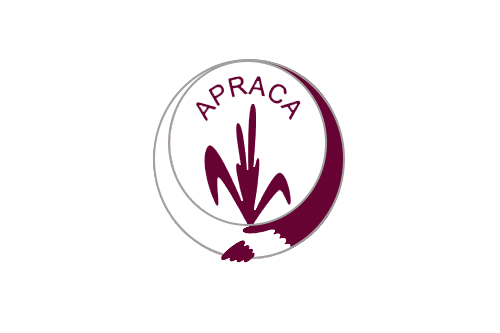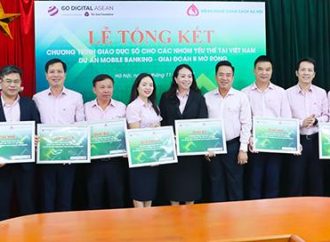Recently we had the special honor of officially welcoming eight new APRACA members consisting of (1) BRAC Bangladesh, (2) Microcredit Regulatory
Recently we had the special honor of officially welcoming eight new APRACA members consisting of (1) BRAC Bangladesh, (2) Microcredit Regulatory Authority of Bangladesh, (3) PKSF Bangladesh, (4) Hattha Kaksekar Ltd. of Cambodia, (5) Chhimek Laghubitta Bikas Bank of Nepal, (6) Bankaltim Indonesia, (7) Regional Development Bank of Sri Lanka, and (8) Union Bank of Colombo of Sri Lanka. Their membership applications were approved by the Executive Committee on 27 September 2013.
With the joining of these new members, the total number of APRACA members has been increased from 60 to 68 in 21 countries. These include nine central banks, 23 agricultural/rural development banks, five cooperative federations/banks, eight commercial banks, 13 microfinance institutions, seven finance related government agencies, and three institutions of other types of rural/agricultural finance.
All the new members were referred or introduced to us by the existing members, thanks to the successful member-get-member campaign launched at the beginning of this year. For any new members joining APRACA during the period from January 2013 to December 2014, APRACA offers in-kind compensation worth US$2,300, which represents the admission fee and half of the annual membership for the first year.
The following are the brief profiles of four new members which you will find useful and interesting.
BRAC (Bangladesh)
BRAC is a development organization dedicated to alleviate poverty by empowering the poor, and helping them to bring about positive changes in their lives by creating opportunities for the poor.
BRAC’s journey began in 1972 in the newly sovereign Bangladesh, and over the course of BRAC’s evolution, it has been playing a role of recognizing and tackling the many different realities of poverty. BRAC believe that there is no single cause of poverty; hence it attempt tackling poverty on multiple fronts.
Priorities
- (i) Focus on women
- (ii) Grassroots Empowerment
- (iii) Health and Education
- (iv) Empowering farmers
- (v) Inclusive Financial Services
- (vi) Self-Sustaining Solutions.
Strengths
Thinking local, acting global
Besides Bangladesh, BRAC spreads antipoverty solutions to 10 other developing countries, which are Uganda, Tanzania, Sierra Leone, South Sudan, Liberia, Haiti, Afghanistan, Pakistan, Sri Lanka and the Philippines.
Unprecedented scale and reach
Today, BRAC reaches an estimated 135 million people with over 100,000 employees worldwide.
The BRAC Family Today
- 97,000 community health promoters providing essential healthcare worldwide, with maternal, neonatal and child health services covering 24.5 million in Bangladesh alone.
- 1.14 million children currently enrolled in BRAC’s 38,000 primary and pre-primary schools, with 9.51 million graduates and over 260,000 teens from disadvantaged backgrounds get life skills training in BRAC’s youth empowerment clubs.
- 5.54 million micro-borrowers with a cumulative loan disbursement of USD 9.73 billion.
- 25 million people have access to clean toilets thanks to BRAC’s sanitation entrepreneurs.
- Over 600,000 rural poor women being organized through 11,234 Polli Shomaj (Village Society) and 1,217 Union Shomaj (Society); Nearly 4.3 million people reached per year by our 376 popular theatre teams in Bangladesh only.
- 101,222 human rights and legal education graduates and 19,252 local community leaders’ workshop participants.
Microcredit Regulatory Authority (MRA) (Bangladesh)
Microcredit Regulatory Authority (MRA) is a government regulatory body established in 2006 under the parliamentary act named “Microcredit Regulatory Authority Act 2006”.
Governed by a Board of Directors, with the Governor of Bangladesh Bank as the Chairperson, MRA aims to bring Non Government Microfinance Institutions (NGO-MFIs) under a regulatory framework in order to ensure transparency and accountability of microfinance activities of the NGO-MFIs in the country.
Obtaining a license from MRA is mandatory in order to carry out microcredit operations in Bangladesh as an NGO-MFI.
Vision and Mission
MRA’s vision is to create a conducive and healthy environment in the microfinance sector that will help in poverty alleviation of the country.
MRA’s mission is to ensure that the NGO-MFIs have robust systems, reliable audits and enhanced transparency and accountability in their operations. In order to achieve its mission, MRA has set itself the task of attaining the following goals:
- Formulate and implement policies to ensure good governance and transparency in the financial systems of the NGO-MFIs.
- Provide training to the NGO-MFIs and link them to the broader financial market to facilitate the availability of sustainable resources and efficient management.
- Identify priority issues of the sector for policy guidance and disseminate the information.
- Conduct in-depth research on critical microfinance issues and provide policy inputs to the government consistent with the national strategy of poverty eradication.
Role and Responsibilities
The major role and responsibilities of MRA include:
- Licensing of NGO-MFIs to undertake microfinance activities.
- Supervision to ensure continued compliance with the licensing requirements.
- Enforcement of sanctions due to non-compliance.
- Establishment of transparency and accountability in the operations of the NGO-MFIs.
Chhimek Laghubitta Bikas Bank Limited (Nepal)
Chhimek Laghubitta Bikas Bank Ltd. (CLBBL) is a microfinance development bank established in 2001 under the Development Bank Act 1995. It was promoted by Neighbourhood Society Service Center (NSSC) NGO which carried out earlier its own microfinance program. Three other commercial banks and some individuals are the major shareholders of the bank. CLBBL has been serving 184,839 clients of 39 districts through 68 branches nationwide. The specific objective of the bank is to improve the socio-economic conditions of the poor, the landless, assets-less and the deprived rural women through the microfinance service.
The paid-up capital of the bank is USD 1.57 million and the Board consists of seven members. The Board recognizes that the financial service is not sufficient for the development of the poor. As a result, CLBBL also takes steps toward the education and marketing areas. Chhimek Academay (school) has been established to support the children’s education of the clients. On the other hand, Chhimek Bazar Baybastha Company Ltd has been established to open up new marketing opportunities for its clients’ products.
Union Bank of Colombo Plc (Sri Lanka)
Union Bank of Colombo (UBC) was established in 1995 as the 8th indigenous bank in Sri Lanka and is positioned as a preferred bank for the Small and Medium Enterprises (SMEs) and retail sectors in Sri Lanka.
Union Bank offers its preferred customer segments a range of comprehensive financial solutions to support their development and growth. It also continues to create a distinctive image by offering unparalleled services to its customers. The Bank provides financial assistance for both existing and start-up businesses in all industries.
Union Bank is one of Sri Lanka’s fastest growing banks with a rapidly expanding branch network.






